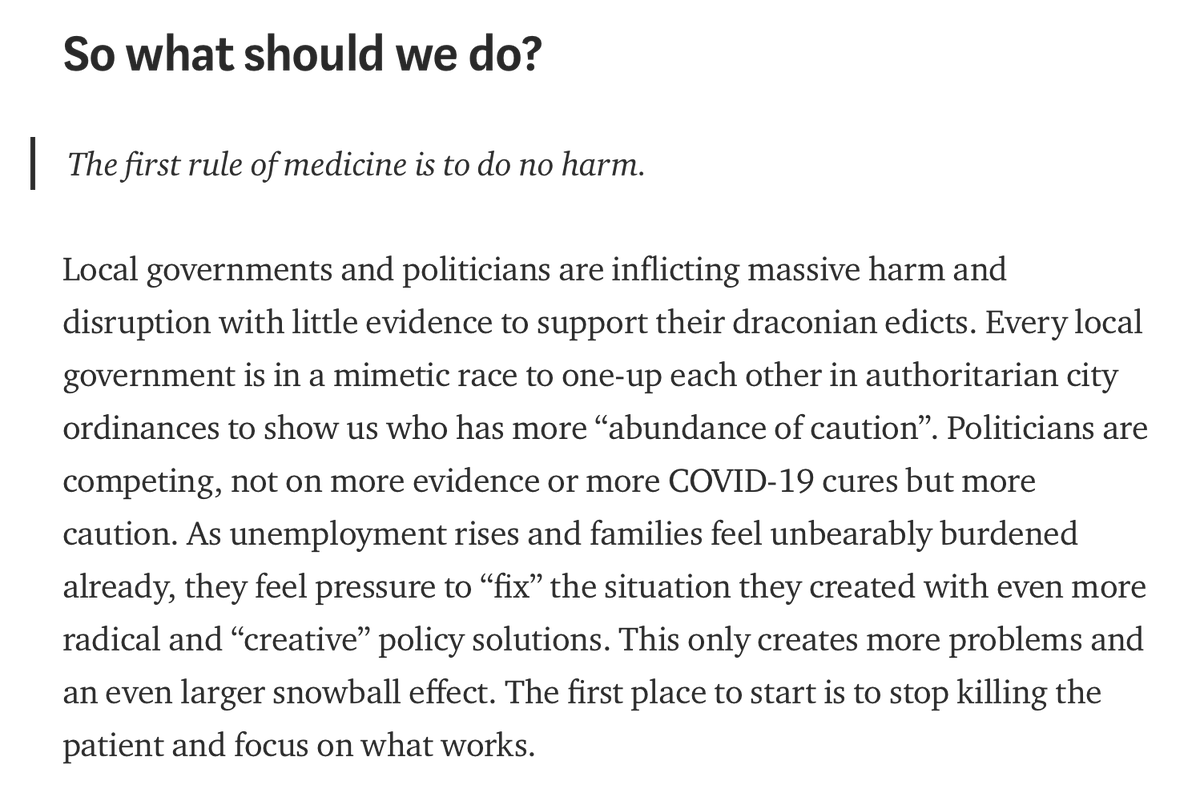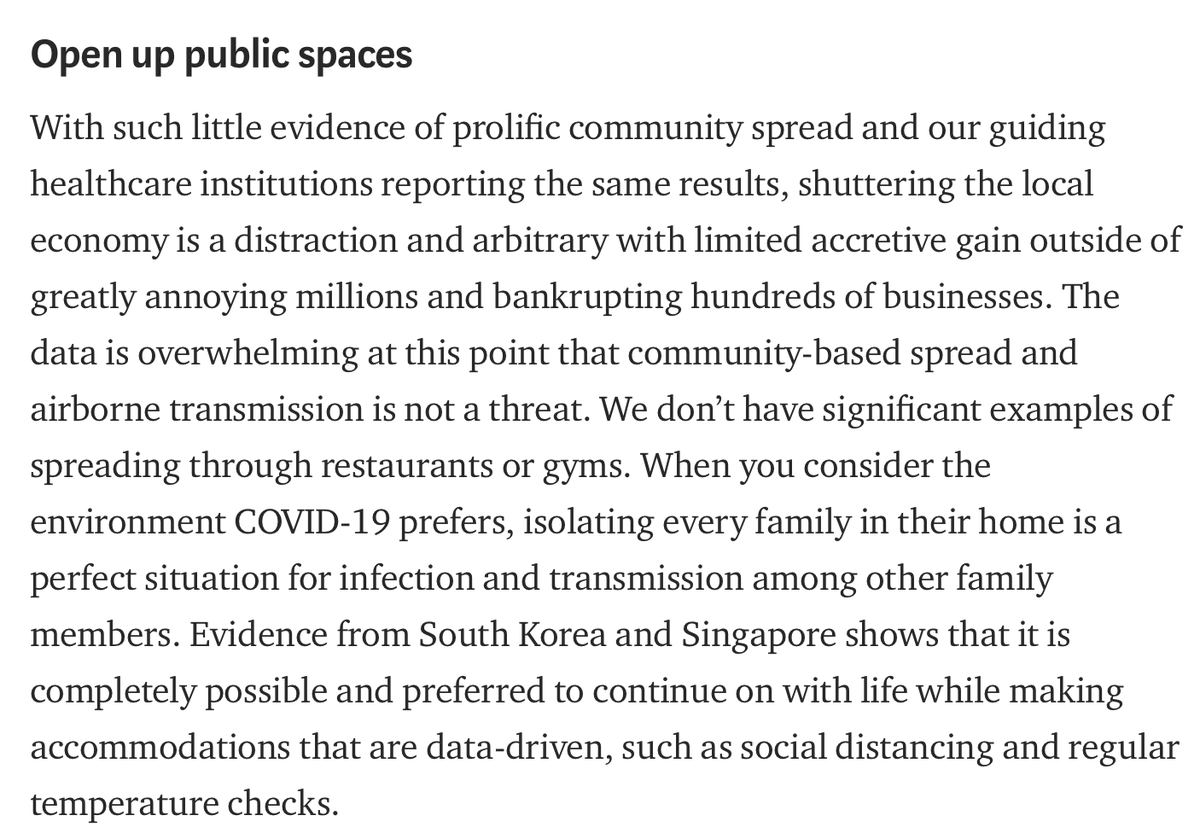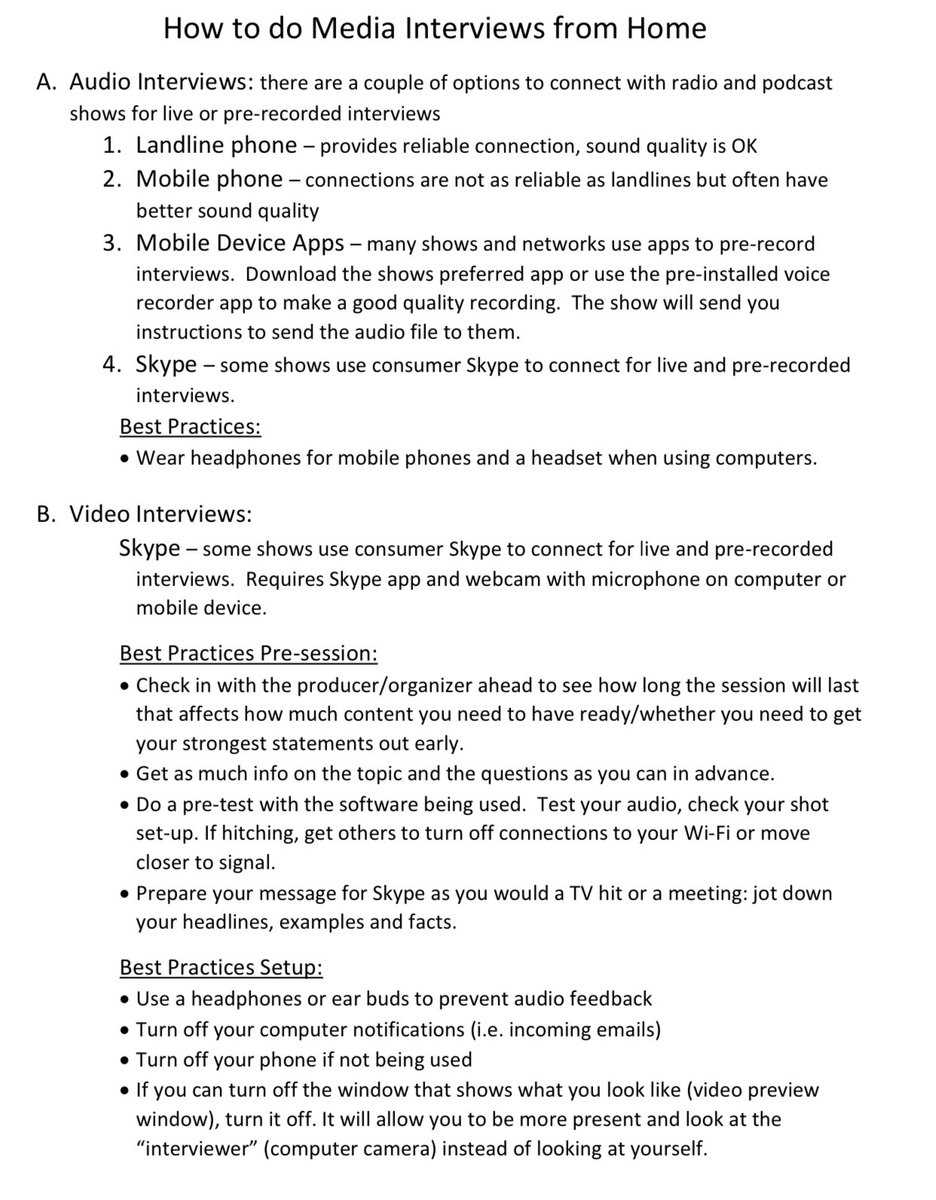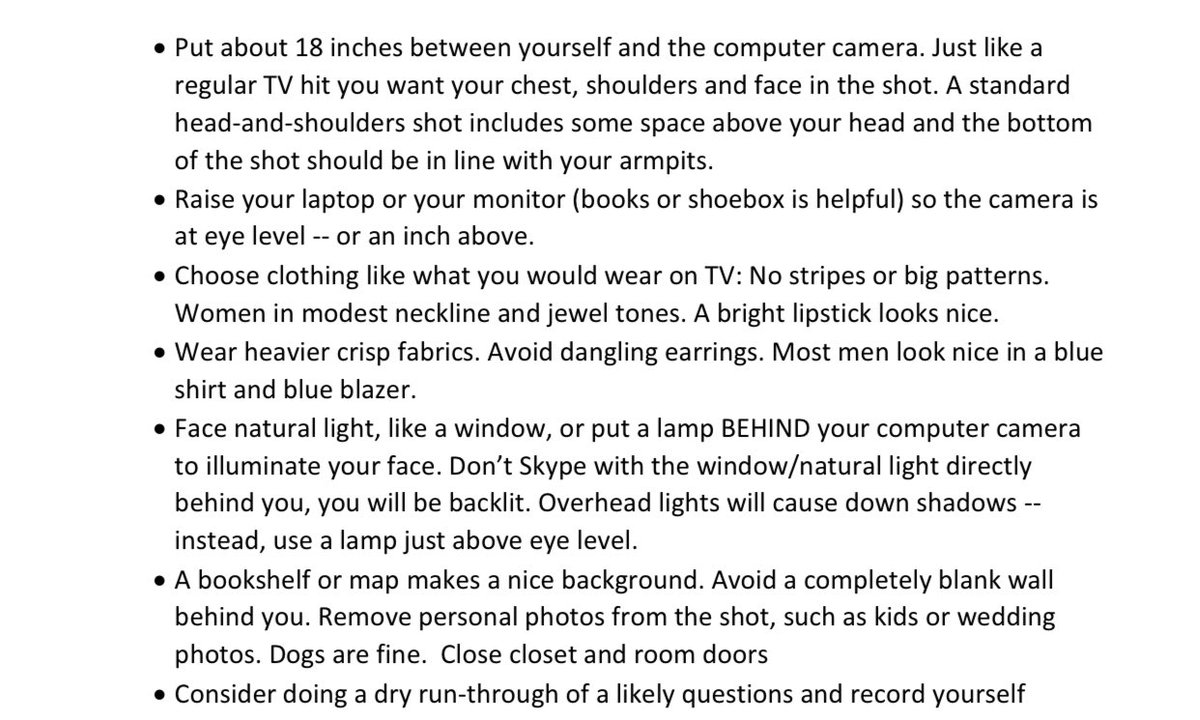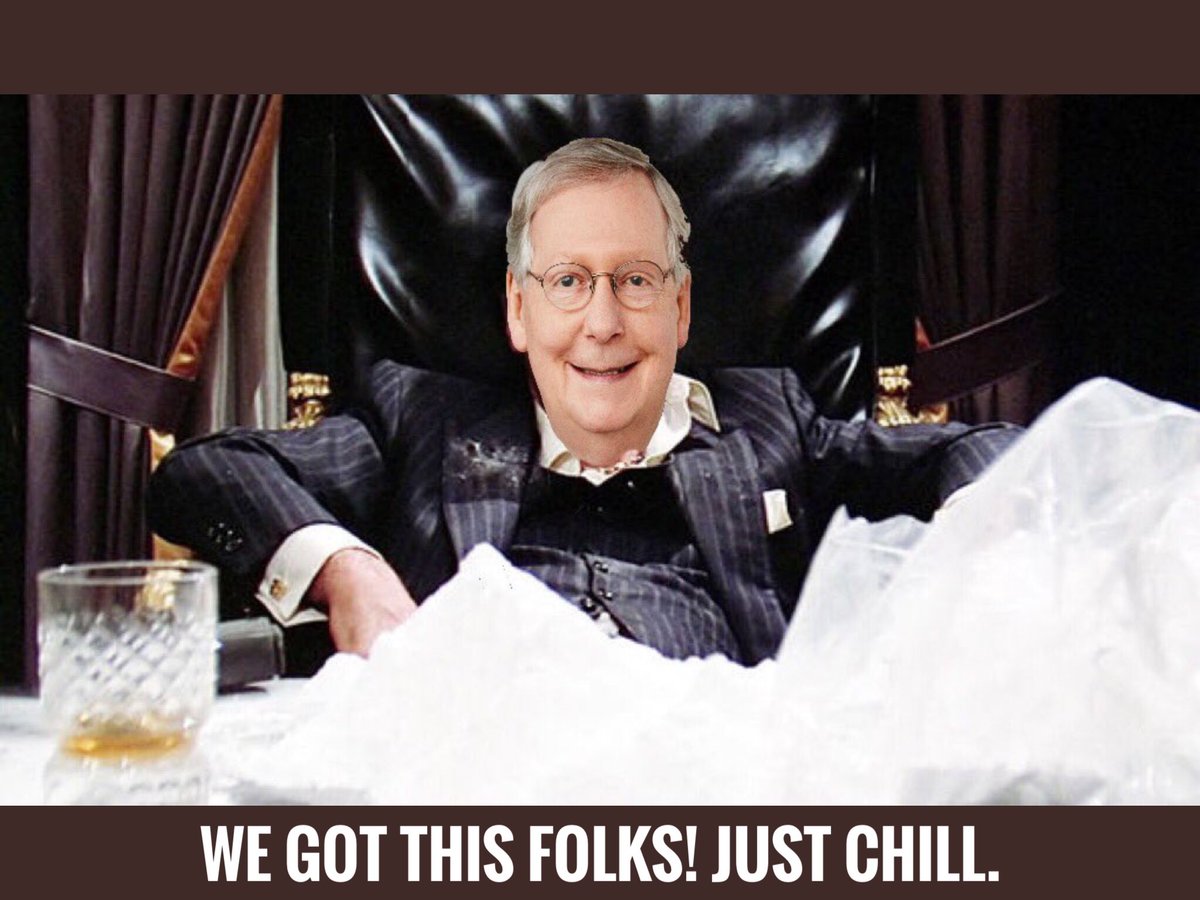It combines a pile of statistics (fine) with a very poor policy argument that I'll rebut here, in a thread
medium.com/six-four-six-n…
The problem? You don't wait for your house to burn down before you buy homeowner's insurance
We have some statistics and can make guesses as to the possible range, but we don't know
What we know is that it can cause absolutely unacceptable outcomes: "ruin"
theguardian.com/world/2020/mar…
If you are in a position of uncertainty - with some risk of ruin - you take *precautions* until you get better evidence
If there's *uncertainty* about your pilot's skill, do you get off the plane?
4) Discounts that it's not just students at school - but teachers and parents as well
Well, we're pretty confident that the virus lives on surfaces, and there sure are a lot of surfaces in those places
Absence of evidence is not evidence of absence
This is just a ridiculous argument: the point is reducing spread between families
China wouldn't have beat the bug, by this logic
South Korea and Singapore have 1) tons of masks and 2) tons of testing
Mask-wearing prevents spread, testing means infected individuals get quarantined
We don't have either, yet
Probably
But there's still enormous uncertainty at this point
Prepare for the worst, hope for the best
In the face of uncertainty, where there is risk of ruin, you take *precautions*
@nntaleb, @normonics, and @yaneerbaryam basically rebutted Ginn's analysis back in January
This kind of thinking led to the housing crisis, discounts the risk of terrorism, ignores fat tails
If there is uncertainty and near-term risk of ruin, TAKE PRECAUTIONS
FIN

